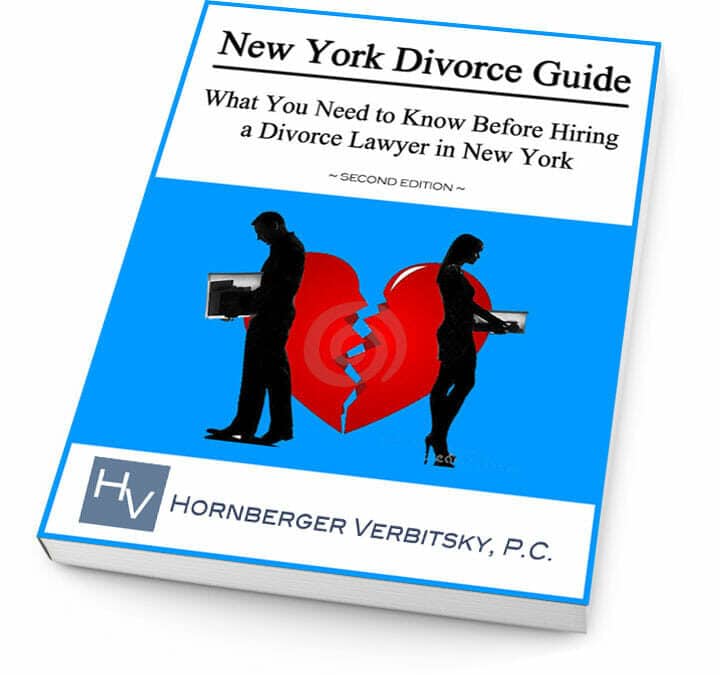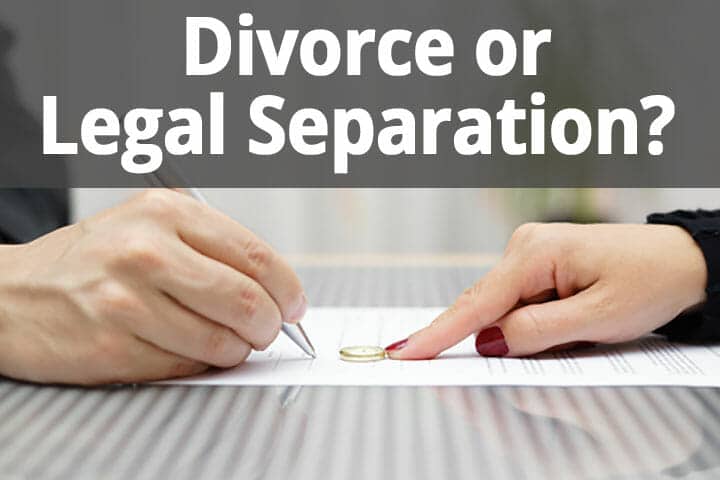FINDING THE RIGHT ATTORNEY FOR YOU
HOME ABOUT US OUR FIRM FIRM YOUR LEGAL TEAM ATTORNEYS YOUR ATTORNEYS ROBERT E HORNBERGER CHRISTINE M VERBITSKY ANNEMARIE LANNI LAWRENCE M. MARINO BRENDA LYNCH (Of Counsel) PRACTICE AREAS AREAS OF EXPERTISE What’s Involved In Divorce DIVORCE DIVORCE COLLABORATIVE...FATHER’S RIGHTS
HOME ABOUT US OUR FIRM FIRM YOUR LEGAL TEAM ATTORNEYS YOUR ATTORNEYS ROBERT E HORNBERGER CHRISTINE M VERBITSKY ANNEMARIE LANNI LAWRENCE M. MARINO BRENDA LYNCH (Of Counsel) PRACTICE AREAS AREAS OF EXPERTISE What’s Involved In Divorce DIVORCE DIVORCE COLLABORATIVE...EQUITABLE DISTRIBUTION OF PROPERTY
HOME ABOUT US OUR FIRM FIRM YOUR LEGAL TEAM ATTORNEYS YOUR ATTORNEYS ROBERT E HORNBERGER CHRISTINE M VERBITSKY ANNEMARIE LANNI LAWRENCE M. MARINO BRENDA LYNCH (Of Counsel) PRACTICE AREAS AREAS OF EXPERTISE What’s Involved In Divorce DIVORCE DIVORCE COLLABORATIVE...
Divorce Attorney, Long Island’s Robert E. Hornberger Explains the Benefits of 4-Way Settlement Conferences
 I have seen in my 15 years of experience as a divorce attorney, Long Island divorce cases often involve what are known as 4-Way Settlement Conferences among divorcing couples and their attorneys.
I have seen in my 15 years of experience as a divorce attorney, Long Island divorce cases often involve what are known as 4-Way Settlement Conferences among divorcing couples and their attorneys.
If you are considering retaining a Long Island divorce lawyer, you may have heard the term “4-Way Settlement Conference.” You are likely wondering what exactly this is and what role it plays in your divorce. While the term sounds scary, it is an extremely useful tool your attorney has in his or her pocket that will help keep you and your spouse out of litigation and away from the courts if done correctly. Therefore, the following are a few useful tips and suggestions to be aware of before sitting down for your first 4-Way Settlement Conference.
- Discuss Your Wants with Your Divorce Attorney Beforehand: the purpose of a 4-Way Settlement Conference is exactly that: a settlement. As I am sure your Long Island divorce attorney will advise you, “a good settlement is reached when neither party is happy”; that means that neither you nor your spouse received everything requested. Your divorce attorney is going to need to be aware of those items which are most valuable to you, whether they be child support, spousal maintenance or continuing to reside in the marital residence, so he or she can use other items as bargaining chips to get you closest to an ideal settlement.
- Be Prepared to Speak up If Necessary: as the client, you play an important role at a 4-Way Settlement Conference. In my 15 years of experience I have been party to settlement conferences where the attorneys took the lead and the client’s simply listened. However, I have also been party to settlement conferences where the clients did most, if not all, of the talking and negotiating between themselves. The attorneys were simply there to act as referees and advise their clients. We can never know which way a settlement conference will go beforehand. Therefore, make sure you are prepared to voice your opinions in the event your settlement conference becomes more “hands-on.”
- Listen and Respect the Desires of Your Spouse: I understand that you may find it particularly hard to care what your spouse wants right now. However, a 4-Way Settlement Conference will only be successful if you are both respectful of the other’s thoughts, feelings and desires. These conferences are collaborative in nature and if you enter the room ready to jump down your spouse’s throat it will be a waste of time.
- Your Attorney Is Advocating For You: prior to entering a settlement conference I tell my clients that they will inevitably walk away feeling as though I did not fight for their interests. This is natural. These conferences are not the time for your divorce attorney and your spouse’s divorce attorney to engage in a contest to determine who is better at their job. If you want your attorney to do this, a settlement conference will not prove fruitful. These conferences are a time to gauge your desires and your spouse’s desires so you both know where the other stands.
- Be Open to New and Different Ideas: your spouse’s attorney may suggest solutions to issues their neither you nor your attorney thought of. Rather than automatically rejecting these ideas simply because they came from your spouse or their divorce attorney, Long Islanders are encouraged to consider them. They may have the potential to solve problems while keeping everyone happy.
- You Will Walk Away Realizing How Close You Really are: many couples focus only on the big ticket items when going through their Nassau County or Suffolk County divorce – the children and the marital residence. However, a settlement conference will allow you to see that other issues, such as automobiles, joint banking accounts, retirement benefits or even the family pet are agreed upon. Knowing only two or three issues remain can alleviate a large amount of the stress involved in the divorce process.
A number of my clients are reluctant to agree to a 4-Way Settlement Conference with their spouse and their spouse’s divorce attorney. However, in my 15 years of experience I have found these conferences extremely useful. If the first conference is successful, we will likely schedule another to iron out any remaining issues. Before you know it, your Long Island Divorce will be settled without you ever having to step foot in a Nassau County or Suffolk County, Long Island Divorce courtroom.
Want More Information? Receive a Free Consultation from a Divorce Attorney
Long Island residents who need more information about 4-Way Settlement Conferences should consult a local divorce attorney. Long Island’s Robert E. Hornberger, Esq., PC’s compassionate and experienced divorce attorneys can help you prepare you and ensure you, and your family’s future is protected. Call us today at 631-923-1910 for a complimentary, confidential consultation or fill out the short form on this page and we’ll get right back to you.
Download our Free New York Divorce Guide
Our 41-page “Guide to New York Divorce: What You Need to Know Before Hiring a Divorce Lawyer in New York” written by an experienced Divorce Attorney Long Island’s Robert E. Hornberger, Esq., provides you with real information on the divorce process and the laws it rests upon in the state of New York. This book will help give you a solid foundation upon which you can begin the process of making your family’s, life better. Download your Free Guide to New York Divorce here.

Divorce Attorney Long Island Warns of Social Media Exposure
 As a divorce attorney on Long Island, I’ve noticed that it’s rare to find a person in today’s society who does not have an account with Facebook, Twitter or Instagram. In the last 10 years especially, social media has become a large part of our lives. Since attending a seminar on electronic discovery in matrimonial proceedings, I thought it was time to remind you of the potential ramifications your social media behavior on your divorce in Nassau County or Suffolk County. As you have likely heard, once you post something on the Internet, you can never get it back and your posts can be used against you in your divorce.
As a divorce attorney on Long Island, I’ve noticed that it’s rare to find a person in today’s society who does not have an account with Facebook, Twitter or Instagram. In the last 10 years especially, social media has become a large part of our lives. Since attending a seminar on electronic discovery in matrimonial proceedings, I thought it was time to remind you of the potential ramifications your social media behavior on your divorce in Nassau County or Suffolk County. As you have likely heard, once you post something on the Internet, you can never get it back and your posts can be used against you in your divorce.
No Expectation of Privacy on Social Media
Because social media sites are public forums, you have little to no expectation of privacy concerning the pictures, statuses, comments or anything else you post on them. That girls’ weekend in Miami or hunting trip in Pennsylvania your friends posted photos of? Your spouse or his or her divorce attorney will see those. While you might not think these posts will have any effect on your case, you could be very wrong, especially in cases where there are tensions involving child support and/or spousal maintenance.
Think about this – your spouse continuously cries poverty and asserts he or she does not have the funds to pay the requisite amount of child support and the financial burden of supporting your children has fallen completely on your shoulders. A few weeks later while online you stumble upon pictures of your spouse driving a brand new BMW or standing outside a beautiful beach house in the Hamptons. How would you feel? Your spouse cannot afford to pay child support but they can afford these luxuries? You are completely mistaken if you think these pictures will not be used as evidence against him or her in your divorce proceeding. Your divorce attorney has a useful tool known as the subpoena in his or her pocket, which will allow the attorney to request records from a third party, including financial documents. And this goes both ways. Be careful what you post online because it can be used against you.
Emails Aren’t As Private As You Think
As a divorce attorney, Long Island’s Robert E. Hornberger, Esq. knows the most important point made at the seminar concerned the use of e-mail to communicate with your attorney. Communications between attorneys and clients that relate to the representation are privileged, but only if the information is communicated outside the presence of strangers. Before e-mail, it was simple to determine if communication was taking place outside the presence of strangers, however it has become a bit more complicated. “Snail mail”, as it has come to be known, is now rarely the sole form of communication used between two people. In fact, most of my clients request I communicate with them via e-mail about important matters.
While email is quicker, what people often do not realize, and what I feel it is my job to point out, are the privacy issues involved. First, you should never use an employer-provided e-email address to communicate with your Long Island divorce attorney, even if you are self-employed. Because your employer, and generally other employees, can access these accounts and servers, it creates the potential risk of losing the attorney/client privilege.
Additionally, do not e-mail your Divorce Attorney from a computer, iPad, or smartphone you share with your spouse or anyone else. If your child plays with the device, make sure it is necessary to enter a separate password before you can access your e-mail on the device. When creating a password, do not use the same word or combination you used during the course of your marriage as this would be easy for your spouse to figure out.
Don’t Let ‘The Cloud’ Rain on Your Parade
Online computer back-up software has become an important part of many people’s lives. Even though most of us don’t understand exactly what “the cloud” is, it has become ingrained in our lives as a way to protect our important files, be they documents, photographs, video or music. With your files backed up to “the cloud”, you no longer need to worry about external hard-drives or transferring all your pictures to a CD-ROM. However, this issue of online backup presents a great concern for Nassau County and Suffolk County divorce attorneys. If your device is hooked up to this type of server, everything — including your emails — may be transferred to it. Other devices connected to your WiFi account may also be able to access the server, in turn gaining access to your otherwise private communications.
As a Divorce Attorney, Long Island’s Robert E. Hornberger Esq. emphasizes that the most valuable advice I can give you regarding your divorce and the Internet is simply “do not do it”. If you need to communicate with your divorce attorney via e-mail, do so from a secure, private account. And remember, nothing on the Internet is every really deleted. Once it’s “out there”, it exists somewhere, even if you delete it.
Have Questions About the Internet & Your Divorce? Your Long Island Divorce Attorney Can Help
Are you concerned about things you may have posted online and how they might affect your divorce? Or, have you seen something your spouse posted and you wonder if it could help your case? The experienced and compassionate divorce attorney, Long Island’s Robert E. Hornberger, Esq., PC can help. Give us a call at 631-923-1910. We’ll do our best to ensure you’re legally protected during your divorce and set you up for the best possible future going forward.
Need More Information on Long Island Divorce? Download our Free New York Divorce Guide
Our 41-page “Guide to New York Divorce: What You Need to Know Before Hiring a Divorce Lawyer in New York” written by an experienced Divorce Attorney Long Island’s Robert E. Hornberger, Esq. provides you with real information on the divorce process and the laws it rests upon in the state of New York. This book will help give you a solid foundation upon which you can begin the process of making your family’s, life better. Download your Free Guide to New York Divorce here.

Download Your Free New York Divorce Guide!
HOME ABOUT US OUR FIRM FIRM YOUR LEGAL TEAM ATTORNEYS YOUR ATTORNEYS ROBERT E HORNBERGER CHRISTINE M VERBITSKY ANNEMARIE LANNI LAWRENCE M. MARINO BRENDA LYNCH (Of Counsel) PRACTICE AREAS AREAS OF EXPERTISE What’s Involved In Divorce DIVORCE DIVORCE COLLABORATIVE...Are Collaborative Divorce & Divorce Mediation Better Ways to Divorce on Long Island?
HOME ABOUT US OUR FIRM FIRM YOUR LEGAL TEAM ATTORNEYS YOUR ATTORNEYS ROBERT E HORNBERGER CHRISTINE M VERBITSKY ANNEMARIE LANNI LAWRENCE M. MARINO BRENDA LYNCH (Of Counsel) PRACTICE AREAS AREAS OF EXPERTISE What’s Involved In Divorce DIVORCE DIVORCE COLLABORATIVE...Long Island Divorce Lawyer Answers Question: ‘Do I Have to Pay Spousal Maintenance / Alimony During or After Divorce’?
HOME ABOUT US OUR FIRM FIRM YOUR LEGAL TEAM ATTORNEYS YOUR ATTORNEYS ROBERT E HORNBERGER CHRISTINE M VERBITSKY ANNEMARIE LANNI LAWRENCE M. MARINO BRENDA LYNCH (Of Counsel) PRACTICE AREAS AREAS OF EXPERTISE What’s Involved In Divorce DIVORCE DIVORCE COLLABORATIVE...












